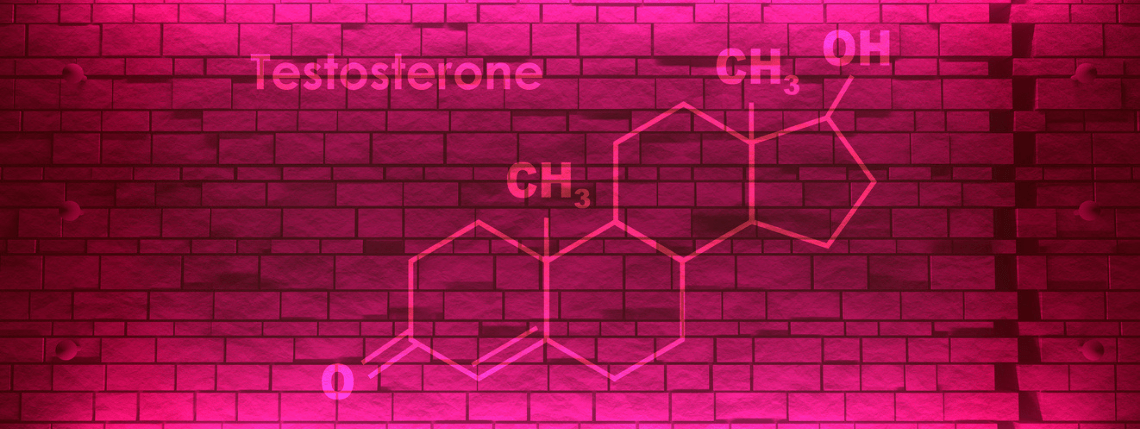Hormone health – focus on testosterone
By Dr Linia Patel (PHD, RD)
How vital is testosterone for our lives?
Testosterone is produced in both males and females. The two main differences are that, in males, it is produced in the testes, whereas in women it is produced in the ovaries and the adrenal glands. Males produce testosterone in abundant amounts, while in females it is produced in lower amounts. That said, the research is very conclusive: both genders should ensure they have healthy levels of testosterone, especially as they age1.
What happens if you don’t have enough?
In adults, healthy levels are important for body composition, libido, energy levels, vitality, bone health, mood, cardiovascular risk … and just about everything else linked to general health. Low levels are also linked to premature death.2
How can you naturally increase testosterone levels?
A person’s testosterone levels fall naturally with age by 1-2% per year; however, some medical conditions, lifestyle choices and other factors can also influence the amount of this hormone in the body:
1. Don’t diet3. Science shows that constant dieting or overeating may disrupt your testosterone levels. Not only does how much you eat affect hormone levels but what you eat is also important. To boost testosterone levels, you need to ensure that you eat enough protein to protect your muscle mass. Carbohydrate intake also plays an important role, as it can help to optimise testosterone levels during resistance training. Healthy fats are also beneficial for testosterone and health.
2. Minimise stress4. Chronic stress results in elevated levels of the hormone cortisol. Unnatural elevations in cortisol can quickly reduce testosterone. These two hormones work in a seesaw-like manner: as one goes up, the other comes down. To manage stress, focus on consuming a diet based on whole foods, regular exercise, good sleep and laughter, as well as being mindful.
3. Sleep soundly5. Getting good sleep is just as important for your health as diet and exercise, especially when it comes to your testosterone levels. One study found that sleeping only five hours per night was linked to a 15% reduction in testosterone levels. Another study calculated that, for every additional hour of sleep you get, testosterone levels rise 15% higher on average. Around seven to nine hours per night is best for long-term health and your testosterone.
4. Lift weights6,7. Research shows that resistance training is the best type of exercise to boost testosterone in both the short and long term. High-intensity interval training (HIIT) has also been found to be effective. Ultimately, the goal is to ensure that you have a well-rounded exercise programme that includes all types of exercise to some extent. Recent research also showed that supplements like creatine monohydrate and caffeine could further boost testosterone levels when combined with a training programme. Ensure that you speak to a dietitian or a registered nutritionist to ensure you supplement appropriately and correctly.
5. Take your vitamin D supplement8. Known as the sunshine vitamin, vitamin D functions as a steroid hormone in the body and so it is not surprising that it has been shown to be a natural testosterone booster. A 12-month study found that supplementing with vitamin D3 increased testosterone levels by around 25%.
Supplements
A wide range of testosterone-boosting supplements are available; however, only a few have significant research to support their use.
The herb with the most research behind it is called ashwagandha (withania somnifera). Ashwagandha9 is primarily used as an adaptogen, meaning that it helps your body handle stress. In healthy men, a recent study found that 5g of ashwagandha per day for three months increased testosterone levels by 10-22%. What is more apparent with the current research is that it seems that ashwagandha could help to increase testosterone levels in stressed individuals, possibly by reducing cortisol levels. A recent study, for example, found that supplementing actually lowered cortisol by around 25%, which indirectly may also aid testosterone.
Ginger and fenugreek are also popular herb options thought to boost testosterone levels. A recent review concluded that fenugreek supplementation (500mg per day) may help to boost testosterone and sexual function in men, particularly those with low testosterone levels10. Ginger, a common household spice, has also been linked to boosting testosterone levels and sexual function in animal studies. In one of the few human studies, men with infertility who took a daily ginger supplement, experienced a 17% increase in testosterone levels after three months11. Although much more research on how ginger might benefit testosterone is needed, eating ginger is safe and may provide numerous other health benefits.
Tribulus terrestris is a herb used for centuries in traditional medicine. The science shows that it may help enhance sexual function and libido, but it does not appear to increase testosterone levels. It’s important to note that increases have been seen in testosterone levels in animals, but it doesn’t appear to have the same effect in humans11.
Dehydroepiandrosterone (DHEA) is an anabolic hormone primarily produced by your adrenal glands that helps to manage both testosterone and oestrogen levels. Some research suggests that taking DHEA supplements can boost testosterone levels, especially as people age; however, although it is one of the most popular testosterone boosters on the market, the research is very mixed. It may only benefit those with low DHEA or testosterone levels and the use of DHEA is banned in professional sports13.
In summary, supplements that may have noticeable benefits do so in individuals with fertility issues or those with low testosterone levels. People on restrictive diets or those training excessively experience significant decreases in testosterone due to restrictive or stressful regimes. It’s also important to note that the long-term safety of using most of these supplements has not been established. Before you reach out for a supplement, make sure you speak to a sports dietitian or registered nutritionist.
You should now go check out Linia’s best-selling online education called ‘Nutrition for Menopause’. It’s two hours of exceptional education.
Author Bio:

Dr Linia Patel has a BSc degree in biochemistry and physiology and has recently achieved a PhD in public health. Linia is a leading dietitian and sports nutritionist. Her passion is translating nutritional science into easy-to-digest and practical advice.
References
1. Kelly et al (2013), Testosterone: a metabolic hormone in health and disease, J Endocrinol., 217(3): 25-45.
2. Wrzosek M et al (2020), The causes of adverse changes of testosterone levels in men, Expert Rev Endocrinol Met., 15(5): 355-362.
3. Trexler E et al (2014), Metabolic adaptation to weight loss: Implications for the athlete, J In Soc Sports Nutr., 11(1): 7.
4. McEwen B et al (1998), Stress, adaptation and disease. Allostatic and allostatic load, Ann N Y Acad Sci., 10: 11.
5. Ellenbogen J et al (2005), Cognitive benefits of sleep and their loss due to sleep deprivation, Neurology, 64(7).
6. Vaamonde D et al (2012), Physically active men show better semen parameters and hormone values than sedentary men, Eur J Appl Physiol., 112(9): 3,267-73.
7. Merwe J et al (2009), Three weeks of creatine monohydrate supplementation affects dihydrotestosterone to testosterone ratio in college rugby players, Clin J Sport Med., 19(5): 399-404.
8. Lerchbaum E et al, Vitamin D and Testosterone in healthy men: A randomised controlled trial, J Clin Endocrinol Met., 102(11): 4,292-4,302.
9. Wankhede S (2015), Examining the effect of withania somnifera supplementation on muscle strength and recovery a randomised controlled trial, J Int Soc Sports Nutr., 25: 12.43.
10. Steels E et al (2011), Physiological aspects of male libido enhanced by standardized trigonella foenum – graecum extract and mineral formulation, Phytother Res., 25(9): 1,294-1,300.
11. Mares et al (2012), The effect of ginger on semen parameters and serum FSH, LH & testosterone of infertile men, The Medical Journal of Tikrit University, 18-22.
12. Kamenov et al (2017), Evaluation of the efficacy and safety of tribulus terrestris in male sexual dysfunction – a prospective, randomized, double-blind, placebo-controlled clinical trial, Maturitas, 99.
13. Walther A et al (2020), Testosterone and DHEA Treatment in Ageing Men: Are We All Set?







